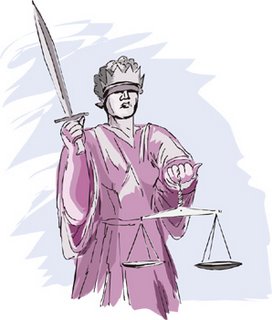
90% of What You’re Saying Ain’t Coming Out of YourMouth
by Susan Dunn, MA, Life & EQ Coach
So said Will Smith in “Hitch.”
Judge Bob Frost would agree. “There’s a lot more that goesinto determining whether a venire-member can be fair thanjust listening to what the person says,” he says.
Judge Frost discussed his decision-making process inallowing or eliminating people to serve on juries who admit bias. The rules have changed since the passage of Cortez, et al. v. HCII-San Antonio, Inc., and now, you don’t haveto eliminate someone because they say they don’t think they can be fair. You’re allowed to figure out if they mean it, or if they can be “rehabilitated” (made fair).
One of the lawyers interviewed called it “rules by nuance.” That's so funny to me, because I see it all as nuance.
When Judge Frost decides, he says he “doesn’t go strictlyby the words of the person.” What he does is read theirnonverbal communication, part of EQ which includes gestures, expressions, tone, pitch, etc.
If a person replies, “I think I can be fair,” nearly any delivery besides a flat one will change the meaning. Said sarcastically it would mean the opposite. Let’s see what happens when we emphasize different words. Read the following out loud:
1. I think I can be fair.
2. I think I can be fair.
3. I think I can be fair.
4. I think I can be fair.
5. I think I can be fair.
6. I think I can be fair.
The second one sounds highly debatable. The first one sounds like the person’s ability to be fair has been questioned in the past. The third one, like he’s the only person who can be fair. And so on.
The judge’s decision may be questioned in Appellate Court by a judge who will see only a written transcript. “I’mlooking at the juror,” Judge Frost says. “...I hear them say ‘I THINK I can be fair.... [T]he inflection in the prospective juror’s voice when saying the word ‘think’ and watching body language makes all the difference.” He admits to reading everybody’s body language, including the lawyers’ reactions to opposing counsel’s questions.
And surely the attorneys will be watching the judge, trying to read him, and later, the jury. How good are lawyers and judges likely to be at readingnonverbal? On average, not very, according to ProfessorChris Guthrie, who teaches at the Vanderbilt University LawSchool. “Lawyers are analytically oriented, [and]emotionally and interpersonally underdeveloped,” he says. Judges might be even moreso; there are few jobs in the US with more power, so if a judge needs to learn some empathy and communication skills, who’s going to tell her?
Trained to remain objective, rational, logical, and tonarrowly advocate, lawyers’ understanding of emotions and their purpose is minimal. One article about EQ I read by an attorney admitted “[lawyers] have a demonstratedunwillingness or inability to tap into emotional data” andthen proceeded to discuss the history of the philosophy of emotion, not mentioning the tremendous strides in neuroaffective (brain-emotion) science which make this more than speculation. The structure of the brain is like theFederal Statues. Determining everything, it must beunderstood.
I can attest that at first it’s slow going working with a lawyer in this area. “Emotions” are devalued by attorneys nearly as much as by physicians, but physicians are being forced to learn it because EQ is directly related to wellness. Interest is growing.
Ronda Muir, Esq., writes in her article entitled, “Emotional Intelligence,” “EI refers to the ability to process emotion-laden information competently and to use it to guide cognitive activities like problem-solving.” This is true, but narrow. What it’s actually about is the interface between emotions andintellect. Emotions give us information. There is not some “information” out there (like a journal) that becomes“emotion-laden” that we then use. When weg et angry, we know we’re getting something we don’t want, or not getting something we do want. “Anger is a good way of knowing whatyou want [emotion] but not a good way of getting it[intellect].”
The most important thing is that EQ can be learned. Statistically, lawyers are low in resilience, menare low in empathy, women are low in stress tolerance,younger people have less EQ than older people. In one ofthe “low” groups? Don’t get mad, go learn it. It can belearned. EQ coaches teach it. Teaching lawyers EQ is challenging because lawyers arearound twice as likely to be INTROVERTED, INTUITORS, andTHINKERS, and 10% more likely to be JUDGERS as otherpeople. Therefore as the stereotype, I face an introverted(rather be alone), intuitor (as opposed to “sensing”),thinker (intellectual) who judges (rather than perceives). Addto this that lawyers score 90 for Skepticism on the CaliperPersonality Profile while the average person scores 50. According to Muir, lawyers also score HIGH on urgency(impatience) and autonomy (independent), and particularlyLOW in resilience and sociability.
It is likely they use masses of data to make cognitive decisions, and make instant ill-formed judgements about people.
Bundling this, I am teaching something NEW about EMOTIONS to an iNTj who is skeptical, risk/change-aversive (she knows she won’t bounce back well if it fails) person who would prefer to be alone and has no patience for process.
Motivation can be high though. Lawyers see it can give them the edge (everyone in their firm has an IQ of 140), or they’ve learned the hard way they need it (divorce, sanctions), or their senior partner has required it, or, my favorite, they were given me and the EQ program as a Christmas present by a loving son who hoped it would make it possible to engage emotionally with his old man before he passes away and it’ s too late.
What price that?
Emotions' other "job" is to connect us with other people, which sustains our life and gives it meaning.
The program consists of interactive Internet courses withpersonal coaching via telephone. EQ cannot be learned by reading alone. That’s like the U. of Chicago student who showed up to take the swimming exam (grad. requirement), nearly drowned, and when rescued and quiered as to what he was thinking, replied, “But I’d read how to.” He had never been in the water.
Emotional Intelligence is actually extremely well tolerated by intellectuals. It’s the missing piece they’vebeen looking for. It is an intellectual and scientific explanation for something that can’t be touched, but now can be “seen” via fMRI, and of course can be felt, once you know where to look. (This we teach as well.)
The empirical data is there, and they like the direct link to wellness. Considering how important EQ is for health, client contact, collegial relations, and trials, it’s a natural for lawyers. In fact one law school now has a course called “Emotional Intelligence.” As a group lawyers score lower than average in EQ, scoring lowest on “accurately perceiving their own and others’ emotions”, and highest in“understanding emotions” (more cognitive).
Analyzing something you got wrong in the first place is like trying to ride a box you thought was a horse. The place where I consistently see this faulty perceptioncome up is when an innocent person who is scared is interrogated. Fear shuts down their thinking process, but it looks to lawyers and judges like they have something tohide. They miss the key differentiators like … well, take my Difficult People course and find out.
©Susan Dunn, MA, Clinical Psychology, Life & EQ Coach,http://www.susandunn.cc/, mailto:sdunn@susandunn.cc . Susan offers EQ coaching, internet courses and ebooks with real-life solutions to cluelessness, faulty perception, Difficult People, personality conflicts, stress, relationship and work issues. She trains and certfies EQcoaches. Come learn with the teacher of the teachers. eMail for FR** EQ eZine.
_____________________________
Go HERE to register for the Difficult People Internet course.
Build up your immune system with ARBONNE. It's your only defense against viruses like bird flu. Yes do it now -- you'll be ready for the winter next year.
The NutriMin RE9 set works together synergistically to give you younger-looking and feeling skin.
Serum, night cream, day moisturizer, mist, and more. $266 online. Email to order through me, and get the Special - $230, delivered to your door.




No comments:
Post a Comment